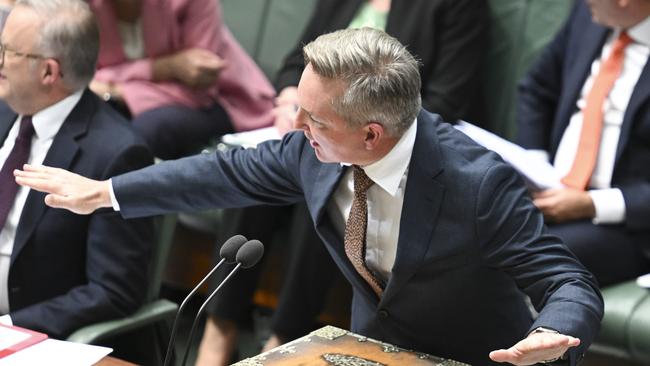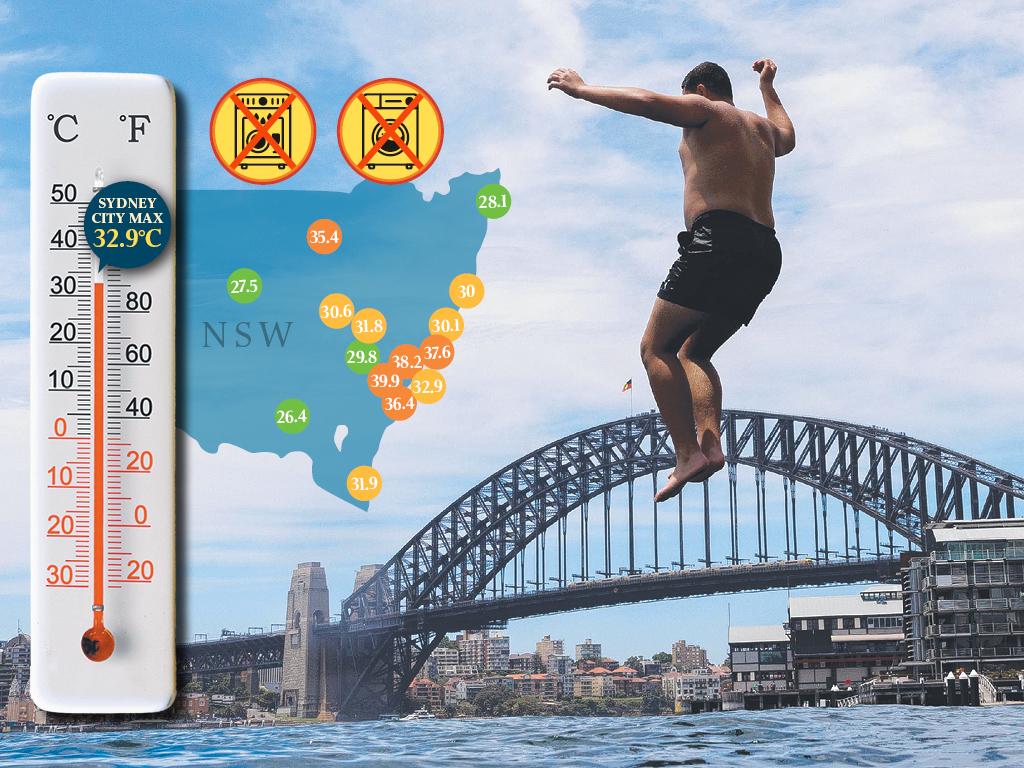GenCost report interesting but not relevant to our plan, Coalition says as Labor claims support for renewables
With energy shaping as a critical election issue, the Coalition has rejected CSIRO’s report on nuclear power plant costings.
Business
Don't miss out on the headlines from Business. Followed categories will be added to My News.
The Coalition has insisted its nuclear plan will deliver cheaper electricity bills to households and businesses, as Labor seized on the CSIRO report as evidence of the merit of its plan as it looks to arrest a slide in the polls just months out from an election where energy shapes a critical issue.
The CSIRO on Sunday issued its latest annual report into cost of generation types, concluding that solar and wind power, in combination with storage such as batteries, remain the lowest-cost form of new generation. Nuclear in contrast is the most expensive.
The report threatens to overshadow the Coalition’s nuclear costing report, but Opposition energy spokesman Ted O’Brien said the report does not model the impact of its plan. Mr O’Brien said the Coalition’s plan will lower wholesale prices, and the CSIRO GenCost report attempts to calculate the cost of building and installing generation types. The Coalition has said the seven nuclear power stations it plans to build will be public-owned.
“The Australian people know Labor’s plan is not working because they are paying among the highest electricity prices in the world. They were promised a $275 reduction in household power bills but are now paying up to $1000 more,” Mr O’Brien told The Australian,
“As interesting as the GenCost report is, it doesn’t model Labor’s policies or the Coalition’s. Nor does it model the cost of the power system which is paid by the Australian people.”
The fierce rejection by Mr O’Brien of the CSIRO modelling underscores the Coalition’s recognition that energy shapes as a critical election issue.
The federal Labor government must return to the polls by May 2025. With polls indicating the Coalition ahead, Energy Minister Chris Bowen moved to seize on the report as evidence that its plan is the most effective way of lowering bills and delivering emission reductions.

“Well, yet again the evidence is in. If we needed any reminding that nuclear is the most expensive form of energy and the slowest form of energy and renewable energy is the cheapest and fastest form of energy, then we got it today from Australia’s premier science agency, the CSIRO, and the people who actually run our energy system, [the Australian Energy Market Operator],” Mr Bowen told reporters in Sydney.
Labor has set the aggressive plan of having renewable energy generate 82 per cent of the country’s electricity by 2030, a plan that requires substantial increases in large-scale wind and solar.
The first of the Coalition’s seven nuclear power stations will not be ready until 2037, though CSIRO said it expects a facility would in fact not be ready until 2040. To bridge the gap, the Coalition has said it will run coal for longer and bolster gas power electricity generation – which is likely to do little to drastically reduce emissions.
The Coalition has yet to disclose where it intends to build the first of its seven nuclear power stations or how it intends to compel landowners such as AGL Energy to agree to host a nuclear facility.
It has insisted its plan will be disclosed by the election, as it positions to capitalise on simmering frustration towards the Albanese government
Emission reductions have been a prominent election issue in the past, but cost-of-living shapes as the most important issue in the minds of voters – and both sides are desperate to claim their rival energy policies will deliver reductions.
But Labor is likely to face a sceptical voter base. Data released by the Australian Energy Regulator last week showed a record number of households are struggling to pay their utility bills.
The AER said more than 130,000 households are now on payment plans, up from 95,634 last year. The regulator also said those entering so-called hardship payment plans – offered by retailers to those unable to keep up on bills – are doing so with higher levels of debt. The AER said the debt for people on payment plans is $1476.
More Coverage
Originally published as GenCost report interesting but not relevant to our plan, Coalition says as Labor claims support for renewables





